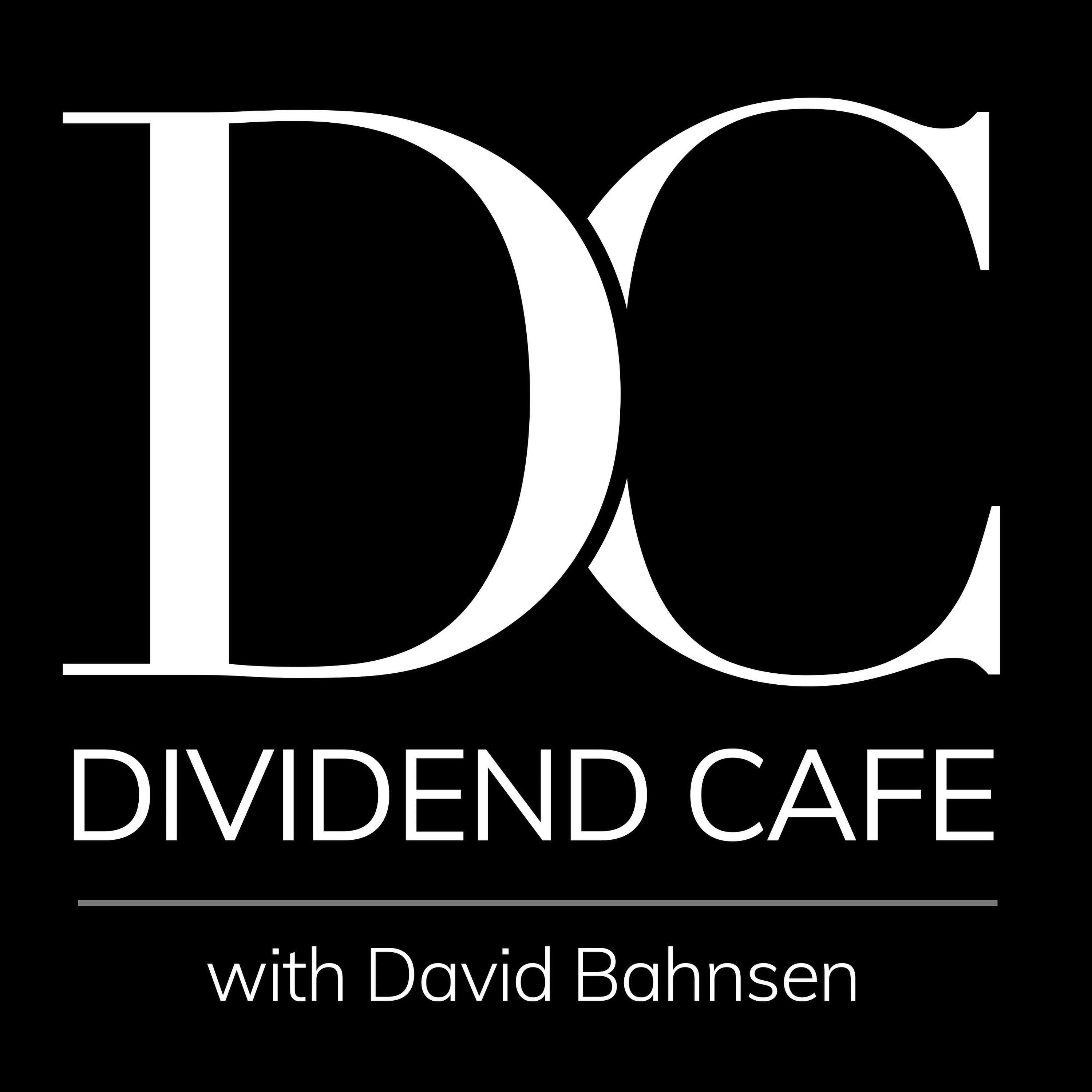Dear Valued Clients and Friends,
Some of you may recall that during the peak moments of COVID anxiety and the national lockdown (March/April) we put out a series of 2-3 minute videos (available below) meant to address specific client concerns. From what investors should do in that moment, to keeping cash on hand, to balancing risk and reward, to the meaning of low interest rates, to implications for housing, to stock ownership, to the need for a fiduciary advisor, we tried to cover topics that we think had relevance in that moment, and frankly, in the moments thereafter.
But in looking back on all of that, I have to say no videos in that little mini-series were more important (in my opinion) than the basic conversation of optimism vs. pessimism. Not only is the topic of extreme importance to me personally, existentially, emotionally, and spiritually, but I was convinced then, as I am now, that there is lasting investment significance to the topic – one that matters to the financial results of real people with real goals and real objectives.
If you fast forward from the levels of uncertainty that existed in markets (and in the society) 6-8 months ago, some may conclude, “okay, well now I am an optimist, because we see a couple vaccines coming and a lower mortality rate than we feared then, but then we saw no such thing, and pessimism was in order.” And if pessimism vs. optimism is to be determined by circumstantial conditions at a moment in time, it is fair enough. If optimism is to be recovered as a hindsight tool for use after conditions have improved, I can understand that assessment (i.e. pessimism when one doesn’t know what is going on; optimism once they see things having gotten better).
But of course, that is not what it means to be an optimist or a pessimist – to form a viewpoint or personality impulse (dare I say, a character impulse) as a backward looking response to then-known conditions. In today’s Dividend Cafe, we are going to unpack this more, and seek to understand why this topic is not just relevant to investors, but perhaps at the very heart of what it will mean to be a successful investor. I am optimistic that you will find it rewarding.
A framework for living, a framework for investing
As I mentioned in that video a few months ago, I do consider myself a broadly optimistic person, and I would hope that those closest to me would say the same about me. This does not mean I am immune from occasional bad moods or dire outlooks, but I think those things are the exception, not the rule. Admitting the potential for exceptions to the rule, I believe my temperament has always been wired for optimism, and I believe this has become more true as I have become older, more studied, more experienced, and more sober-minded.
Please don’t get me wrong – this is not me tooting my own horn. I don’t think there should be a medal for those who lean into the “glass is half-full” camp … We are all wired how we are wired, and I don’t see my natural wiring as some special achievement – I just see it as a part of who I am, for good or for bad. But there is a reason I want to put it out there in the investment context …
I believe the worldly circumstances that have enhanced and formed my optimistic leanings foreshadow why I believe investors may want to consider the same. Put differently, one can only have so many really, really bad things turn out okay before they find a basis for foundational optimism. And this is not only true in my own life, it is true for investors as well.
A one-sentence summary: I believe things that are bad get better because they have always gotten better, so to not think such is irrational. I believe this is my own life, and I believe this for a well-behaved investor in their multi-decade journey with markets.
Putting down the straw man right up front
“Are you saying I am supposed to smile and cheer when markets drop 30% in a month?”
“Are you saying we have nothing to worry about when the government is $25 trillion in debt, or when a global foe is becoming a hegemonic and hemispheric power, or when a company we own has a disastrous quarterly result?”
“Are you saying shutdowns, small business closures, high unemployment, political dysfunction, and stagnant economic growth are all causes to celebrate?”
“Are you really asking us to grin when there is nothing to smile about, and put our heads in the sand when circumstances are dire?”
The answer to most of these questions is “no,” though candidly, not all of them. What I am asking you to do is recognize a few things.
Be teachable, and then be optimistic
I had a client once (you will soon be able to figure out why I did not keep her as a client) who found the end of the world around the corner in every single thing you can imagine. Obama would destroy western civilization. Millennials were not going to prove capable of running a free society. Capitalism is about to become a relic in American society. All news is fake news. You get the idea. Every single news event was a reason the market would go down 20%. In fact, if I add up all the 20% drops the market was supposed to have by now because of George Soros and this threat and that threat and so forth and so on, the market should be down about 2,000% by now …
But here’s the thing – we are supposed to be chastened when we are wrong. We are supposed to re-examine our presuppositions when things do not pan out as we confidently predict. We are supposed to learn from our mistakes. And perma-pessimism has been ground zero for the opportunity to re-examine the holes in our worldview.
Why didn’t Obama destroy the world as predicted by some? Why didn’t Trump destroy the world as predicted by some? What can I learn about a $25 trillion debt level that many missed back when the debt was below $1 trillion and they were sure that the world was about to end?
Oh. And why did the society survive a global pandemic that some media networks and market pundits told us was sure to wipe out our lives and fortunes?
I think this is the point I am making – having an instinct that is concerned by things – especially legitimate things – is not the problem. But being unwilling to adjust or inform one’s instincts after perpetual opportunities to do so, is. We must be teachable.
A fair diagnosis
And the reason we often are not teachable is because pessimism is much less of an intellectual condition than it is a sociological one. It is soothing to wallow sometimes. It is a coping mechanism. And when the end of the world is averted over and over and over and over again, there is no reason for a perma-pessimist to surrender their commitment – for indeed, one can always manufacture the pre-conditions necessary to hold fast to an imminent doom and gloom. There will never, ever be a time that some plausible argument cannot be made for badness. It is a fallen world. There is badness to be found. Unless one is re-wired to learn from history, and to consider a new and more curious sociological framework for interpreting news and events, this condition can persist in perpetuity.
Applying this to our portfolios
Being a pessimist can be rewarding for certain periods of time – sometimes just days or weeks – and other times for a bit longer. There are moments in history when pessimism can seem to be a rewarding investment philosophy.
But I would point out, even the Great Financial Crisis saw markets decline from fall of 2007 through March of 2009 – let’s call it 18 months – and that was the grand-daddy of all pessimistic payouts in our lifetimes. 18 months. And within that 18 months, truth be told, the real violence of the market swoon was just six months.
Let’s look at this COVID period. Assume you were one of those three people out there saying with a straight face that as early as January you believed a global pandemic filled with national shutdowns was coming, and that you believed COVID-19 was going to be vastly different from SARS, MERS, Swine Flu, H1N1, and a whole host of viral outbreaks that have impacted humanity in recent years. Even then, the real violence lasted for about four weeks (from roughly the third week of February through roughly the third week of March). Since that time, unprecedented economic contraction, significant setbacks in the case growth around the pandemic, ample unfortunate decisions in public policy, and a decisive drawdown in expectations for corporate profitability, have all been accompanied by a positive market in every single month besides a little tech-driven re-pricing in the early part of the fall.
It is expensive to be a pessimist, and I don’t say that as the qualitative judgment of an optimist; I say it as an empirical fact.
Pessimists can goat during bear markets. They can gloat during those tail risk events shake the bottom out of markets. But that gives them gloat-worthy moments every decade or so, and with the full assurance that on the other side of their gloating is a painful rally to the upside that reaffirms the realities to the profit motive, innovation, and the human spirit. If I were going to be pessimistic about something, it would be the lifestyle of the pessimist (can you imagine the horror of knowing that every time you are enjoying something bad happening, something good is going to come around and ruin your bad day?).
Tying it together
Blind optimism is not all that useful, either. I am not sure it benefits investors to just say, “it will all work out” (though I do acknowledge, there is more historical support for that position than blindly saying the inverse of that). What I want to do in my life and career is provide people the information necessary to rationally support an optimistic worldview. I have a lot of tools in the toolshed with which to do this, but that doesn’t alleviate the responsibility to do it. It is one of the reasons I focus so much on time horizons. The more time that is involved in something, the better the odds of a positive outcome.
Optimists don’t have to think things are going to be great tomorrow, or next week; they just have to think they will be okay when they need to be okay. And because most investors have longer-term time horizons to formulate their financial base, and longer-term time horizons to live out their financial objectives, I find it to be professional malpractice to generate financial advice out of short-term time horizons that do not match the real timeline of a client’s accumulation and distribution objectives.
In all things, thoughtful rationality. But human nature is a failed investor (h/t Nick Murray). It rejects the thoughtful and the rational in pursuit of the comfortable and the soothing, and as we have established, there are those who derive comfort and relief from pessimism.
In conclusion
It has been an expensive proposition to formulate investment policy out of a pessimistic wiring. This has not merely been true since March, or since 2009, or since Clinton took office, or since Reagan took office, or since the advent of the personal computer, or since the automobile, or whatever catalytic event you want to cling to … It has been true forever.
The self-correcting mechanisms of markets are under-appreciated by humanity. The sheer efficiency of the profit motive is under-appreciated by investors. The relentless pursuit of capital’s most rational use is misunderstood by ivory tower economists.
But for us optimists, we must be guided by this simple and unalterable truth: History has been kind to those who have maintained a positive spirit, and taken actions in line with such.
************************************************
The Treasury Fed Accord – a Teaser
On Thursday afternoon of this week the Treasury Department published a letter they have sent to the Federal Reserve informing them of their intent to close some of the emergency liquidity vehicles that were opened out of the CARES Act, and requesting the excess funds in these facilities to be returned to Treasury. There is actually a lot in this story that I want to unpack, so I am committed to having a special article on this for you next week (most likely included in the Monday edition of DC Today). The contemporary realities of monetary policy are more important to modern investing than any other topic we could basically cover, have been for two decades, and will be for quite some time. The news yesterday was fully expected, but it does tee up a bigger discussion that simply must be had.
Politics & Money: Beltway Bulls and Bears
- We expect to hear early next week who Joe Biden has selected as his Treasury Secretary, and I am hearing more and more confirmation that it will be former Fed Chair, Janet Yellen.
Chart of the Week
Sometimes voters scream for change out of big messes. The lessons of the 2020 election are going to be missed by many for years to come, I suspect.

*Mehlman Castagnetti, Election 2020, Nov. 10, 2020
Quote of the Week
“What lies behind us and what lies before us are tiny matters compared to what lies within us.”
~ Ralph Waldo Emerson
* * *
I am looking forward to a special [annual] Thanksgiving Dividend Cafe next Wednesday. I hope you all will be celebrating with friends and family, filled with ample gratitude for the blessings we enjoy. Enjoy your weekends, and reach out with any questions or feedback any time.
With regards,
David L. Bahnsen
Chief Investment Officer, Managing Partner
The Bahnsen Group
www.thebahnsengroup.com
This week’s Dividend Cafe features research from S&P, Baird, Barclays, Goldman Sachs, and the IRN research platform of FactSet
The Bahnsen Group is a team of investment professionals registered with HighTower Securities, LLC, member FINRA, SIPC & HighTower Advisors, LLC a registered investment advisor with the SEC. All securities are offered through HighTower Securities, LLC and advisory services are offered through HighTower Advisors, LLC.
This is not an offer to buy or sell securities. No investment process is free of risk and there is no guarantee that the investment process described herein will be profitable. Investors may lose all of their investments. Past performance is not indicative of current or future performance and is not a guarantee.
This document was created for informational purposes only; the opinions expressed are solely those of the author, and do not represent those of HighTower Advisors, LLC or any of its affiliates.












